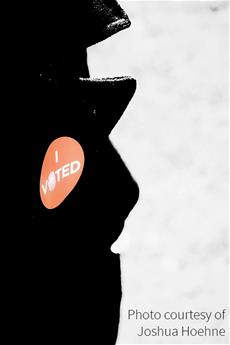 As Election Day approaches, Minnesota is on pace to see well over 1.5 million early votes, more than half the total turnout in the 2016 presidential election. Civic participation is at an all-time high, with Minnesotans amplifying their voices on the issues most important to them and their communities in the form of their vote.
As Election Day approaches, Minnesota is on pace to see well over 1.5 million early votes, more than half the total turnout in the 2016 presidential election. Civic participation is at an all-time high, with Minnesotans amplifying their voices on the issues most important to them and their communities in the form of their vote.
Even as participation in our democracy increases, the Minnesota Council of Nonprofits (MCN) is hearing a lot of anxiety about the upcoming election. Across the political spectrum, people have strong feelings and opinions about this election.
As community leaders and trusted messengers, nonprofits are important voices to promote civic participation and share good, reliable information about voting in their communities. Our sector has a long-standing commitment to a strong and inclusive democracy; a democracy where every person is counted, heard, seen, valued, and represented. We know that when our democracy is working for all of us, we can achieve progress and reduce disparities in housing, education, health care, environment, criminal justice, and more.
What should nonprofits consider as next week's election approaches?
Share with your communities that final results of all elections will likely not be decided on election night. This is a sign that our democracy is working and that every vote is being carefully counted. We are resilient and will wait for the results to be announced.
If the election outcomes are delayed more than we are used to, or there is post-election unrest, the post-election period may be troubling to staff, volunteers, and community members who are already experiencing many kinds of stress.
What are some things we can do?
- Acknowledge the anxiety and fears within your organization and in your communities. Acknowledge that the election is likely to have a significant impact on your communities and on your organization – this isn't just individual stress.
- Know that nonprofits can publicize or convene nonpartisan events that provide an opportunity for communities to express their thoughts and feelings, and that nonprofits cannot publicize or convene events that focus or even hint at preference for a particular candidate or political party. If the event is organized by a 501(c)(3) nonprofit, it should be nonpartisan, though we recommend reviewing information about the event or talking with event organizers to ensure their intent is that it is a nonpartisan event.
- Promote voting, and help people know how to track their own absentee ballot! Direct people to track their absentee ballot to make sure it was received at mnvotes.org/track.
- Remember that in times of crisis, clear and consistent messaging is important. Share your messaging with all staff to ensure they know what is expected of them, and what the organization’s plans are.
- Make plans with scenarios in mind by asking yourself the following questions.
- How do we ensure we’re putting the needs and safety of communities most affected by civil unrest first when considering our actions?
- How might our organization and our communities be impacted by civil unrest?
- Is there contingency planning that needs to be done?
- What will our communities (clients, donors, neighbors) be looking for from us?
- Will mass coordinated action change our priorities and communications?
- How can we prepare organizational leadership (Board members, staff, etc.) for possible situations and what might be required of us?
- Will a contested election impact end-of-year fundraising or annual strategic planning?
- Consider how your organization can be more civically engaged in the future. What are your plans to eliminate barriers to voting and support your communities as they vote in the future?
This is our democracy
This is our democracy and every vote is going to count. Regardless of election outcome, we know there is much work ahead of us as we continue to advance prosperity and equity. Civic engagement does not end with this election. As Minnesotans, let’s come together as neighbors and commit to building community and working across difference to uphold our democracy.